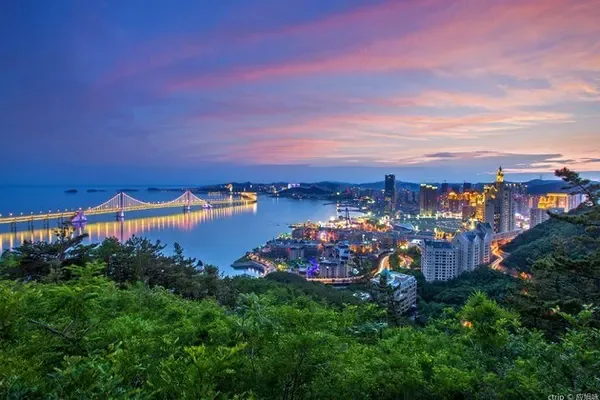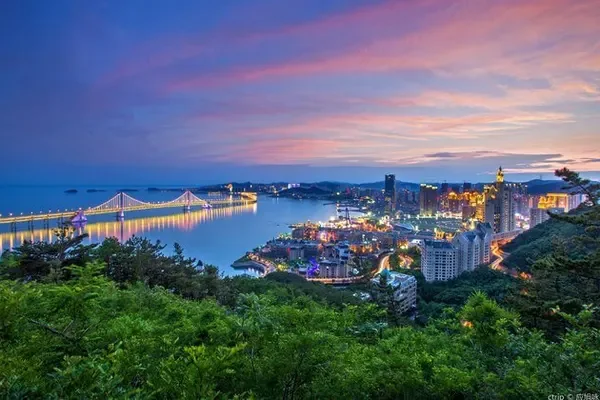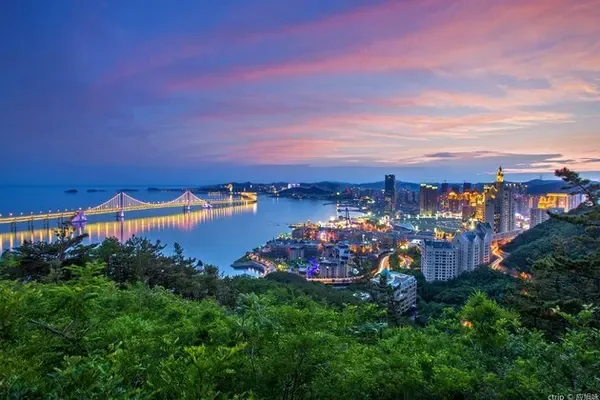Self-driving travel in 2014 (22) Traveling with grandson
Sichuan · Yanyuan · Lugu Lake · Lugu Lake Town
Luguhu Town is located in the west of Yanyuan County, Liangshan Yi Autonomous Prefecture, Sichuan Province. It is named after it is located on the bank of Lugu Lake.
Since there are written records, the central dynasties of the Yuan, Ming, and Qing dynasties established the Zuosuo Tusi Qianhu Office in Lugu Lake, established the Tusi system, and the Tusi Office was stationed in Doshe. In 1951, the Zuosuo Autonomous Region was established. a township. In 1952, Haiyan Township was established in the east bank of Lugu Lake, and the township government was relocated from Doshe to Gula in 1964. In 1972 it was changed to a commune, in 1984 it was renamed Donghai Mongolian Township, in 1992 Haiyan Township was transformed into Luguhu Town, and the town government moved back to Doshe.
The southwest of Lugu Lake borders Yongning Township, Ninglang County, Yunnan Province, and faces each other across Lugu Lake. The northeast is adjacent to Gaizu Township and Qiansuo Township of this county. Town People's Government resident doshe village. It is 118 kilometers away from Yanyuan County in the east, 256 kilometers away from Xichang, 85 kilometers away from Ninglang County in Yunnan Province in the south, and 218 kilometers away from Lijiang City. It covers an area of 283 square kilometers and has a population of 10,000. It is directly connected by Yanzuo Highway (Yanyuan to Zuosuo). It governs 8 village committees including Muxu, Duoshe, Bajia, Haimen, Bushu, Nawa, Zhipu and Shekua. The main agricultural products are corn, miscellaneous grains, and potatoes, and the bilateral white melon seeds are exported to earn foreign exchange. Animal husbandry is dominated by cattle, horses, sheep, pigs, fish and poultry. Lugu Lake has beautiful natural scenery and even more fascinating cultural customs. In August 1988, Lugu Lake was designated as the second batch of national key scenic spots by the State Council of the People's Republic of China. In 1993, Sichuan Province listed Lugu Lake as a provincial-level scenic spot. National 4A-level tourist attraction.
The Mosuo people are an unrecognized ethnic group. During the entire identification process of the country, the central government has not declared their national and ethnic identity in a public announcement. The Mosuo people live by the beautiful Lugu Lake in Lijiang City at the junction of Sichuan and Yunnan, with a population of about 50,000. They have their own language, but no written language. Lugu Lake is famous all over the world for its unique Mosuo style and beautiful landscape.
The total population of Lugu Lake is about 10,000, and the total area is 283 square kilometers, including 35 square kilometers of Lugu Lake water area. The population density is 35 people per square kilometer. There is 1 provincial-level cultural relics protection unit. Jia rubbing dance has been listed in the national intangible cultural heritage list. Mosuo people's festival of turning mountains and seas, walking marriage customs, Chengding ceremony, and Daba culture have been listed in provincial intangible cultural heritage. heritage list. Mosuo folk songs, dances, paintings, sculptures and other folk arts maintain their ancient characteristics, exude a strong flavor of Lugu Lake, and are very rich in content. The Mosuo Museum is the only museum in China and the only one in the world that systematically displays the history, culture and folk customs of Mosuo. It opened for trial operation in January 2014, and was listed as "Sichuan Museum-Mosuo Museum" in October 2014. As an important part of the construction and protection of the Mosuo homeland, the Mosuo Museum building.
The main places of interest include the Lugu Lake Alu Gongba Sutra Hall, which is listed as a key cultural relic protection unit in Sichuan Province, and Gesa Village, which has earth pit tombs from the Warring States Period to the early Han Dynasty, with an area of 20,000 square meters.
The local conditions and customs of Lugu Lake have a unique and rich connotation based on the unique culture and ethnic customs of the Mosuo people. It is an irreplaceable world cultural heritage in the whole country and even in the world.
The Mosuo people have lived on the banks of Lugu Lake for generations, and they still retain the matrilineal extended family headed by women and female members who carry on the family line and the matrilineal clan marriage system of "no marriage for men, no marriage for women, voluntary union, freedom of separation".
The Mosuo daughters raised by Lugu Lake are all beautiful and strong, hardworking and kind-hearted, with love as deep as the sea. They weave a girl's dream in their personal flower room and realize her sincere love. They don't have the rules and regulations left by the ancient sages and sages, and they don't have the troubles of loneliness, loss, and sadness. They don't expect everything that doesn't belong to them; they won't be slaves of money, material and power; they work, live, and carefree in this magical land according to their simple nature and the guidance of their hearts. Falling in love; displaying one's true nature to the greatest extent in the mountains and rivers of the mother lake; singing and dancing heartily in the most solemn, warmest and most joyous celebration of the Mosuo goddess Gemu - the Zhuanshan Festival , enjoy the sweetness of life to the fullest.
There are 12 original Mosuo villages by the Lugu Lake in Sichuan, and each village has a matrilineal extended family for tourists to visit. Visitors here can experience and understand the unique folk customs of the Mosuo people, such as walking marriage culture, religious culture, matrilineal culture and some production and living conditions. In different seasons, you can also participate in some traditional festivals of the Mosuo people, such as the Mountain and Sea Festival, the Buddha Sun Festival, Chengding Ceremony, Lama Club, etc. At the same time, you can also learn about the unique Daba culture of the Mosuo people. Go to the Mosuo people's home to taste delicious delicacies and special foods of Lugu Lake, such as Huahua Tang, Alibaba, Sulima Wine, Dangdang Wine, Sour Fish, Pickled Pear, Pork Fat, Pork Leg and so on.
There are also two ancient Han villages, one Naxi ancient village, two Pumi ancient villages and two Yi ancient villages by the lake, which maintain the Manchu and Qing culture, forming a unique cultural landscape of Lugu Lake.
The main natural scenic areas include "Caohai" and "Bright Sea (Lugu Lake)" and their subsidiary areas.
The natural shape of Lugu Lake is very beautiful, in the shape of a half moon, known as the "Shangri-La Blue Moon". There are five whole islands, three peninsulas and a seawall connecting the islands in the lake. The islands in the lake are graceful and jade-like, with different shapes, lush trees, emerald green like jade, and the water and sky are the same color, as clear as a mirror. The algae flowers are dotted in the meantime, the pig trough boats gliding slowly on the blue waves and the Misuo folk songs slowly floating between the dry water and the sky add a bit of simplicity and tranquility to it. virgin lake. Every sunny day, the blue sky and white clouds are reflected in the lake, the water and sky are the same color, and the scene is wonderful. It is like a bright pearl inlaid in the embrace of mountains, with rippling blue waves and charming scenery. It is known as "Pearl of the Plateau" and "No. 1 Wonderful Scenery in the East".
Lugu Lake is full of mystery due to its quaint folk customs, beautiful mountains and rivers, and rich legendary customs. In the northwest of the lake, the majestic Mount Graham (Lion Mountain) stands majestically. This is the goddess Graham who is worshiped and personified by the Mosuo people.
Houlong Mountain is a long island wedged in the center of Lugu Lake, with a length of 4 kilometers. Houlong is the male mountain god in Mosuo myths and legends, and he and the goddess Gemu are a beloved couple. They turned into a mountain island, dreaming across the sea during the day, and spent a good night together in a "walking marriage" at night.
The southeast of the lake is connected to Caohai, where the pasture is abundant, the cattle and sheep are fat, and the dense reeds in the shallow sea are rippling with the wind. Every winter, tens of thousands of rare migratory birds such as swans and black-necked cranes inhabit here, adding a kind of vitality and a kind of scenery.
Around the lake, in the dense virgin forest, deer, deer, blue sheep, and hares come and go, giving people a bit of wildness. On the shore of the lake, there are criss-crossed fields, vast expanses of countryside, work at sunrise, rest at sunset, wooden houses, smoke from cooking, pastoral songs, fishing fires, brothers and sisters, go hand in hand, it is a farmhouse with a thousand scenes , It has the realm of "Peach Blossom Spring" written by Tao Yuanming! Make people linger and look back! Lugu Lake is surrounded by high mountains, twists and turns, dense forests, fresh air and charming scenery, giving people an infinite reverie. This is an attractive pearl on the southwestern plateau of our country. The Mosuo people call it "Xie Nami", which means "mother lake". She is like a simple and quiet Sleeping Beauty, lying in the embrace surrounded by green hills, and like a huge sapphire hidden here by the Creator, a radiant sky mirror. The mountains, rivers, plants and trees here are all endowed with the myth of female images, becoming a veritable "daughter country" in our contemporary times.
Two and a half laps around the lake in two days, watching the beautiful scenery of Lugu Lake along the way, feeling the folk life of the Mosuo people by the lake, the different cultural customs of Sichuan and Yunnan provinces, embracing clouds and emerald pearls in the morning, sleeping in the evening Falling asleep in the moonlight breeze, forgetting myself, amazed and intoxicated by the natural beauty of Lugu Lake. Life is a process of experience, the degree of experience depends on different mentality, and the mentality needs to be precipitated in the experience, skip the scenery and be calm, go through the wind and rain is life, isn't it.












































